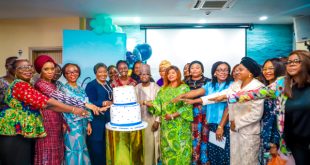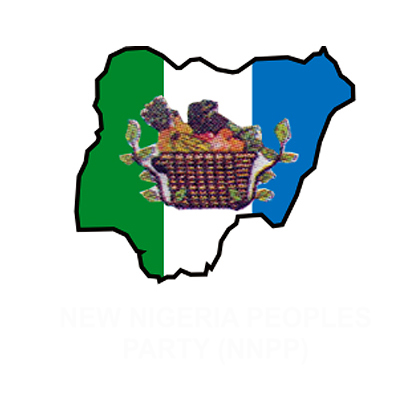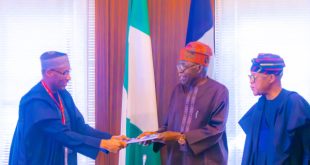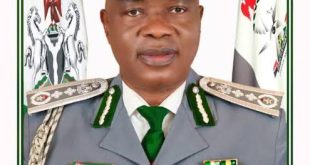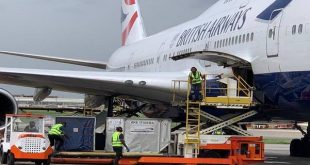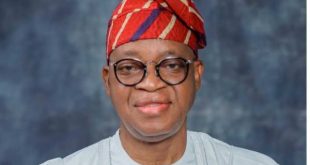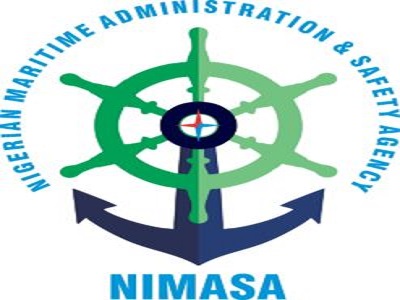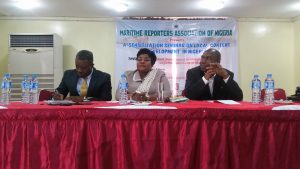
By Kenneth Jukpor
The Nigerian Navy has been accused of indiscriminately arresting over two hundred and fifty seafarers in the country, a situation which has left maritime stakeholders alarmed as most of the victims get unjustly imprisoned.

This unpleasant development has lead industry veterans coin the term ‘criminalization of seafarers’ as they accuse officers of the Nigerian Navy of being overzealous.
The President of Nigerian Licensed Ship-Chandlers Association, Dr. Martins Enebeli raised this issue while speaking at a one-day seminar organized by Maritime Reporters Association of Nigeria (MARAN) on Tuesday, on the theme; “Local Content Development in Shipping and Oil and Gas Operations in Nigeria”.

Mr. Enebeli lamented that in most of the cases, the sentences didn’t follow due judicial process even as he asserted that some of the offences should have been meted out to the ship-owners or ship charterers.

Reacting to this issue at the event, the Chairman of the National Seafarers Welfare Board, Otunba Kunle Folarin, admonished the Navy to create a robust surveillance system on the carriage of crude in order to curb the frivolous arrests.
Otunba also revealed that most of the victimized seafarers were foreigners, noting that five were released and sent to their countries two weeks ago.
Although, the Seafarers Welfare Board supplies items to the victims in prison, Otunba Folarin called for more diplomatic channels to be developed to engage the respective countries of the seafarers to negotiate their release.
“Most of these seafarers among the imprisoned 250 are not Nigerians; they are from other countries. Those from poorer countries hardly get assistance from their countries to negotiate their release; but the National Seafarers Welfare Board supplies items to them in prison” he said.
Meanwhile, the Lagos Coordinator – Nigerian Indigenous Ship-owners Association (NISA), Capt. Taiwo Franklin Akinpelumi advised the Economic and Financial Crimes Commission (EFCC) and journalists to do in-depth investigation in order to unearth the ship-owners and ship charterers who are the main culprits in the crime.
“You can’t really blame the Navy for these arrests and imprisonment. The Navy arrested them but the courts imprisoned them. Journalists and the prosecutors like EFCC should do investigation and provide the real players in the crime” he said.
He lamented that the norm in the country is that the seafarers suffer for the crime committed by the ship charterers and ship owners.
“The captain and senior officers may know the materials that have been loaded onboard the vessel. They have the capacity to know if the items are legitimate or not, so such senior officers should be held liable while the younger ones should be exonerated. However, in this country it is unfortunate that the ship-owner which is the number one culprit is allowed to go scot-free while the ordinary seafarers suffer” he said.
At the MARAN event, Otunba Folarin also advised the Nigerian Maritime Administration and Safety Agency (NIMASA) to emulate Liberia in its bid to increase the number of ships registered in the country.
“There are no shipyards in Liberia. Ships aren’t made in Liberia; yet they have an admirable ship registration volume as Europeans prefer to flag Liberia. Why would anyone want to flag Nigeria when it takes more than three years to complete the documentation process of a ship” he told MMS Plus.
 MMS PLUS NG – Maritime, Aviation, Business, Oil and Gas News Online Newspaper with coverage in Maritime, Oil and Gas, Aviation, Power and Energy as well as Financial News
MMS PLUS NG – Maritime, Aviation, Business, Oil and Gas News Online Newspaper with coverage in Maritime, Oil and Gas, Aviation, Power and Energy as well as Financial News



